Is 10-year-old diesel fuel still good, and if so, what influences its longevity? In the realm of petroleum-based products, understanding the nuances of diesel fuel degradation can be critical.
Diesel fuel, like all other fuels, has a shelf life, and its quality can deteriorate over time. While its molecular integrity remains intact, outside influences such as contaminants can affect its performance.
Stored under optimal conditions, diesel can last for a substantial duration, but after 10 years, its reliability comes into question.
Dive in as we explore the longevity of diesel, the factors that affect its shelf life, and some tips on proper storage.
In This Guide:
Viability of A Decade-Old Diesel Fuel
Understanding the viability of decade-old diesel requires a closer look at its chemical properties. Over time, these properties can transform, potentially impacting fuel performance.
You shouldn’t use 10-year-old diesel fuel in your engine. While potential usage remains a possibility, the presence of microbial growth and water contamination often suggest otherwise.
Before attempting its use, it’s crucial to inspect for discoloration or a foul odor, indicative of degradation.
Old diesel may have degraded, become contaminated, or lost efficiency, making it unsuitable and damaging for engine use.
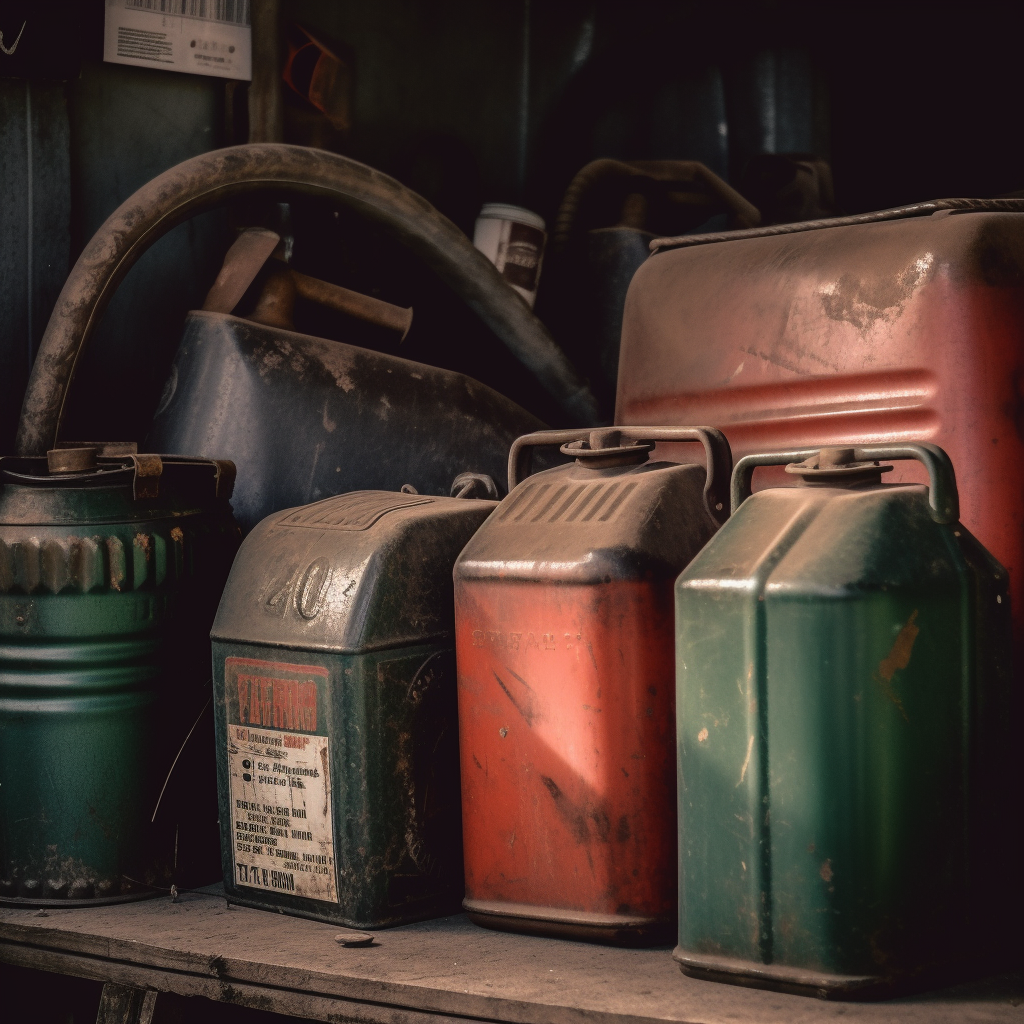
Risks of Running Engines on Aged Diesel
Utilizing old diesel in engines poses threats that center around fuel contamination. Such contamination can compromise the engine’s efficiency and lifespan.
Diesel engines, designed for optimal performance, can suffer if fed stale fuel. Combustion inefficiencies, often signaled by smoke emissions are common, as are engine deposits which hinder performance. Over time, this can lead to costly damages and reduced engine lifespan.
As time passes, diesel fuel can break down and become contaminated with water, bacteria, and debris.
This nasty fuel can then clog up your filters, harm your injectors, and even make your engine stop working altogether.
Diesel Fuel’s Shelf Life
Diesel fuel typically lasts 6 to 12 months in proper storage conditions. Factors like exposure to air, heat, and contaminants can reduce its shelf life.
However, there are also ways to extend its shelf life, which we’ll discuss below.
How To Extend Diesel Fuel Shelf Life
For those keen on extending diesel’s life, a few strategies stand out. There are a few ways extend the life of your diesel fuel, you can filter it, add biocides or stabilizers. Below are the different ways you can extend your diesel’s shelf life.
Filter Your Diesel Fuel
Filtering your diesel fuel is paramount in ensuring its longevity and maintaining its lubricity. A clean fuel system promotes better combustion and fewer engine issues.
Modern engines equipped with diesel particulate filters effectively remove contaminants that could damage the engine. To filter your diesel fuel, select a filter designed for diesel applications. Allow the fuel to settle for a few hours so larger contaminants drop to the bottom.
Regular filtration removes impurities, ensuring cleaner and more efficient combustion. So always use a high-quality fuel filter to make sure your fuel’s clean before it enters the engine.
Then using a pump or gravity, pass the diesel through the filter into a clean container, effectively removing contaminants. Check and replace the filter periodically to maintain clean fuel.
Filtering diesel fuel is helpful in emergencies; this helps protect the engine from damage and makes the fuel usable.
Add Biocides
Adding biocides to diesel counteracts microbial contamination. These microbes can proliferate in the fuel, causing spoilage and equipment damage.
When using these, adding them to fresh diesel and consistently treating stored fuel is essential. However, always follow the manufacturer’s guidelines, as incorrect dosages can either be ineffective or potentially damage the fuel system.
Bio Kleen Diesel Fuel Biocide effectively combats microbes in diesel, especially with today's low-sulfur fuels that are more prone to contamination.
Ideal for maintaining a clean fuel system, this dual-phased solution targets both bacteria and fungus in diesel fuel and water.
Integrate Fuel Stabilizers
Integrating fuel stabilizers into your diesel can combat oxidation. This process is key in extending the fuel’s shelf life and maintaining its efficacy.
Adding fuel stabilizers to your gas can extend the shelf life of diesel fuel up to 24 months or even longer in some cases. It does this by preventing oxidation, which can lead to the formation of gums and varnishes, clogging fuel filters and injectors, and reducing engine performance.
Some common diesel stabilizers include the following:
This fuel stabilizer enhances the performance of diesel fuel. It protects engines and extends fuel storage life.
This additive offers year-round protection by removing water and preventing algae growth. STA-BIL is tried and true and is our top pick for long-term diesel fuel storage.
This additive enhances the lubricity of diesel fuel and protects against cold weather gelling.
Remember to follow the manufacturer’s instructions for the appropriate dosage and application.
Maximizing Diesel’s Shelf Life Duration
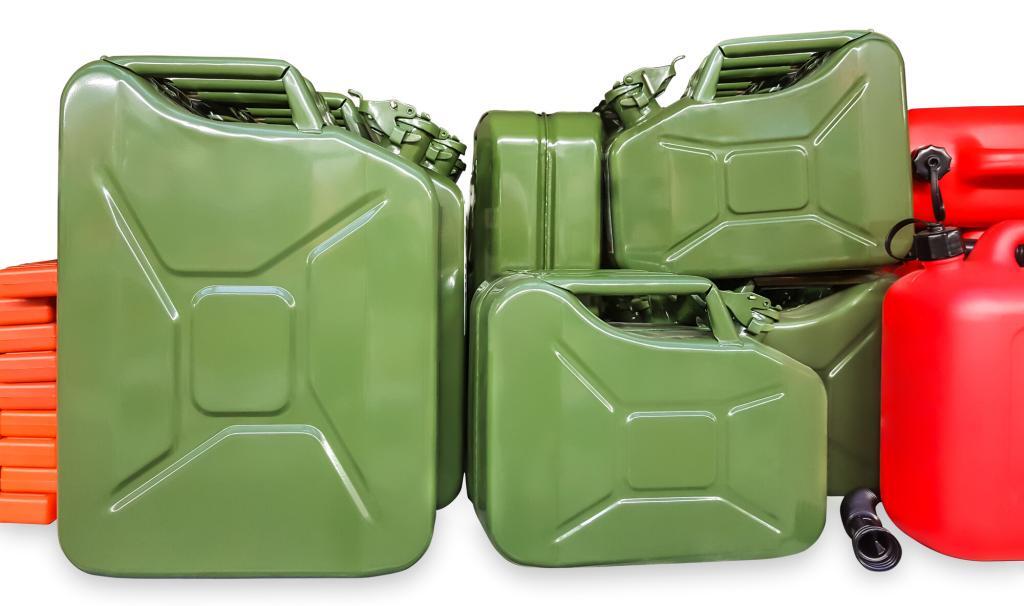
Proper storage can drastically reduce degradation and maintain fuel quality. While fuel storage tanks are prevalent in various industries, they each have specific guidelines to follow. Here are some tips for storing diesel for a long period of time:
1. Choose Optimal Diesel Containers
Choosing the right container, like the specialized fuel storage tanks, ensures the diesel remains uncontaminated for longer durations. Use approved, durable containers designed for diesel fuel storage.
Steel or high-density polyethylene (HDPE) containers are usually standard for diesel storage.
Other storage options for storing diesel fuel are the following:
- Steel Tanks. Strong and can handle rough weather. These can be costly and need regular upkeep to avoid rust and corrosion.
- Polyethylene Tanks. Cheaper and require less maintenance. Not as sturdy as steel.
- Portable Fuel Containers. For short-term or emergency fuel needs. However, they are not suitable for long-term storage.
- Intermediate Bulk Containers (IBCs). Reusable containers made of plastic or steel, designed for transporting and storing diesel fuel.
They come in various sizes and are stackable for easy storage, but they require regular inspections to ensure safety and prevent leaks.
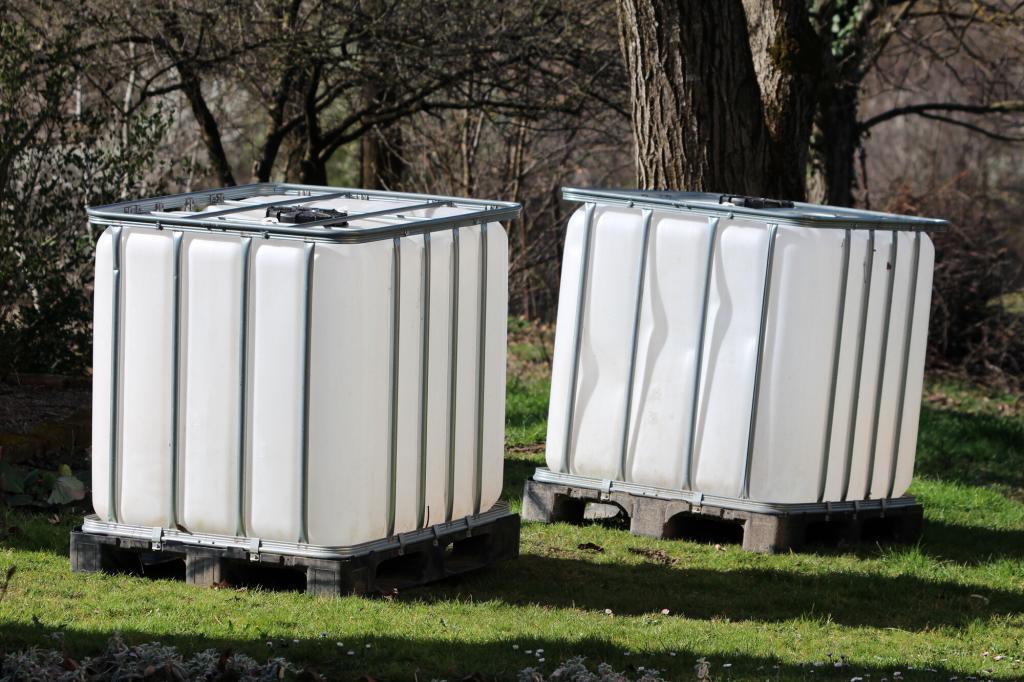
2. Properly Seal the Storage Container
Sealing the diesel container properly is crucial as a proper seal keeps moisture, air and external contaminants at bay, which can lead to fuel degradation and bacterial growth.
3. Select a Suitable Location
The storage location for diesel can make a difference. Cool, dark places, away from direct sunlight, can enhance diesel’s longevity. Store it at a temperature below 70 degrees Fahrenheit. Also, avoid sources of heat or ignition.
4. Keep the Storage Tank Clean
Regular cleaning of diesel storage tanks prevents sludge build-up and contamination. This hygiene practice ensures fuel efficiency and longevity.
Regularly inspect and clean the storage tank to remove water, sediment, and microbial contamination. This helps maintain the quality of the fuel and prevents tank corrosion.
Check for contamination, leaks, and signs of deterioration, such as rust or cracks in the container. Ensure that the storage area remains clean and free of debris.
5. Use Water Absorbers or Water Separators
Water absorbers or water separators can prevent moisture contamination, one of diesel’s prime enemies, ensuring fuel remains pristine. These also help remove any water in the diesel fuel and prevent damage and microbial growth.
Factors That Affect Diesel’s Lifespan
Several factors, from temperature to contaminants, play a role in determining diesel’s lifespan. For example, fuel oxidation is a leading factor that shortens diesel’s lifespan. Knowing these factors can guide better storage practices.
- Oxidation: When diesel gets exposed to air, especially at warmer temperatures, it can start to degrade. Think of it like a metal rusting over time.
- Water Contamination: If water gets into the diesel (it can even be from condensation inside the storage tank), it can lead to microbial growth. These microorganisms produce acidic by-products, which aren’t great for engines.
- Impurities and contaminants: Over time, dust, dirt, or other substances might find their way into the storage tank, affecting the fuel’s quality.
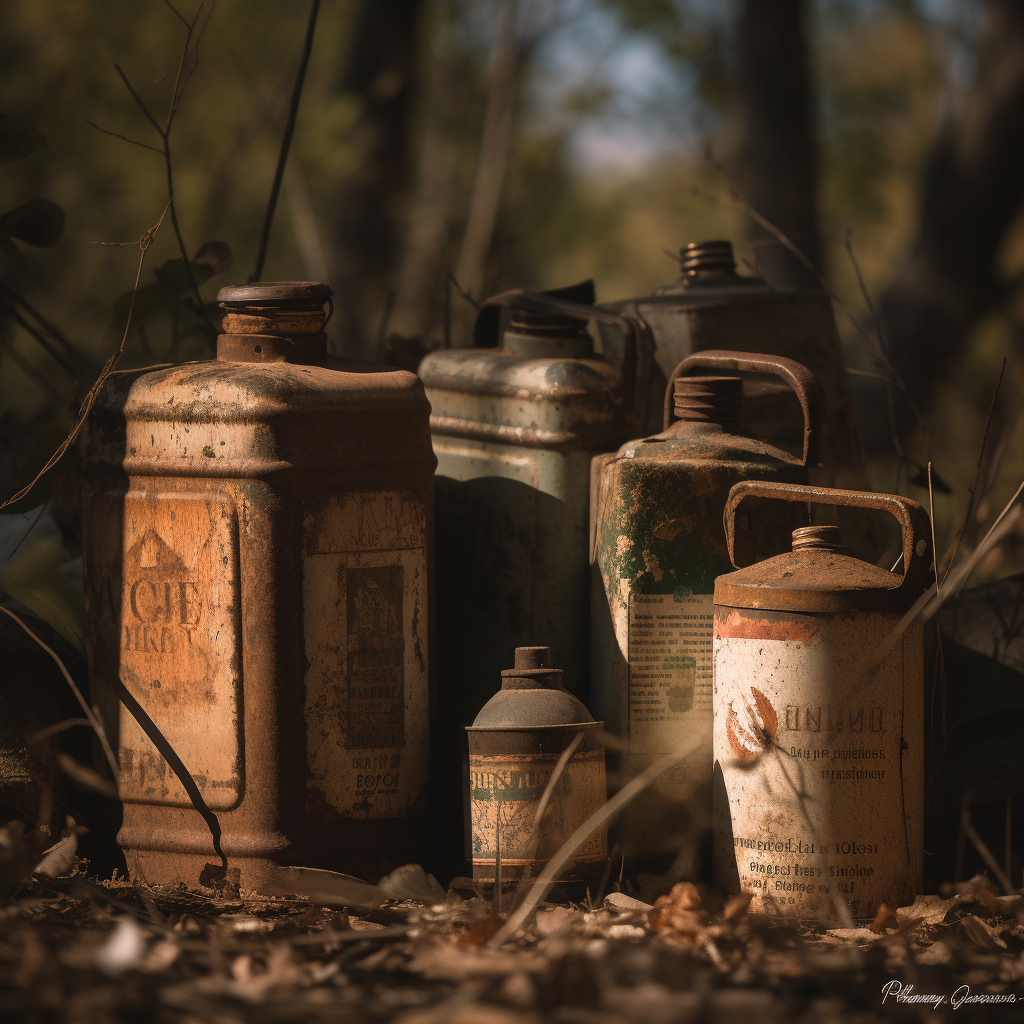
Signs Of Bad Diesel Fuel
It’s crucial to identify compromised diesel fuel. The cloud point, a technical indicator, provides insights into diesel’s present condition.
Here are other signs to look for.
- Color and odor. Aged diesel fuel may have a darkened color or a foul, rotten smell. These are indications of contamination or chemical changes.
- Sediments or water. Inspect for particles, sludge, or water in the fuel. These can cause engine damage or reduced efficiency.
- Engine performance. Observe poor engine function. Watch out for hard starting, reduced power, or frequent stalling. These could be solid indicators that your diesel has gone bad.
FAQs About Is 10 Year Old Diesel Fuel Still Good?
What happens when diesel fuel sits for a long time?
Diesel fuel tends to degrade over time, forming sediments, gum, and varnish. This can lead to clogged fuel filters, injectors, and reduced engine performance.
Additionally, microbial growth may occur, causing further fuel contamination and storage tank corrosion.
How long does diesel last in a truck?
Diesel fuel typically lasts 6 to 12 months in a truck’s fuel tank if stored under optimal conditions. Factors like temperature, humidity, and the presence of water and contaminants can influence its lifespan.
Will old diesel fuel burn?
Yes. Old diesel fuel can still burn, but with reduced efficiency and potential risks. The degraded fuel may cause incomplete combustion, leading to increased emissions, engine wear, and poor fuel economy.
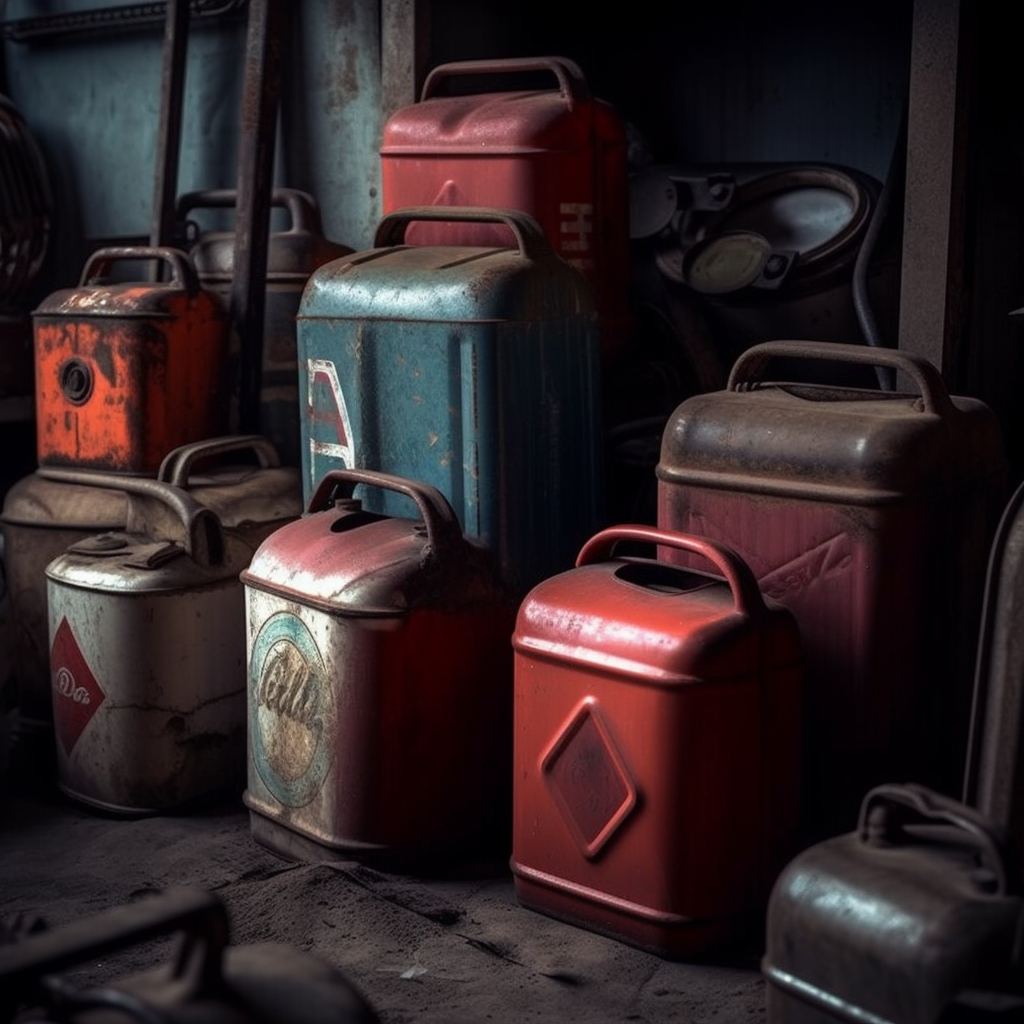
Key Takeaways: Is 10 Year Old Diesel Fuel Still Good?
So, is 10-year-old diesel fuel still good? As we’ve explored, its state depends on several care measures and signs of degradation. But in general, it’s not safe to use 10-year-old diesel, as it may have degraded over time, potentially harming engines and affecting performance.
So if you plan on storing a great deal of fuel, you should check on it often and use it if it hasn’t been touched in two years. After that, you should replenish it with new sticks to provide a reliable emergency supply.
Proper storage is important to keep your diesel in tip-top shape. By keeping these points in mind, you’ll be well on your way to enjoying the perks of diesel fuel while staying safe and maintaining your fuel stock.
ABOUT THE AUTHOR
Bill Montgomery is the co-founder of Modern Day Prepping. He and his wife Angie have been dedicated to the self-reliant lifestyle since 2008. When he’s not working on the homestead, he enjoys tinkering with electronics and family movie nights with Angie and their two boys. To learn more about Bill, visit the About Us page.
If you want to know how to keep your family safe in the modern world, visit Privacy For Patriots, a sister site that Bill started to help fellow Patriots stay "off the radar" from bad actors and big tech.






0 Comments